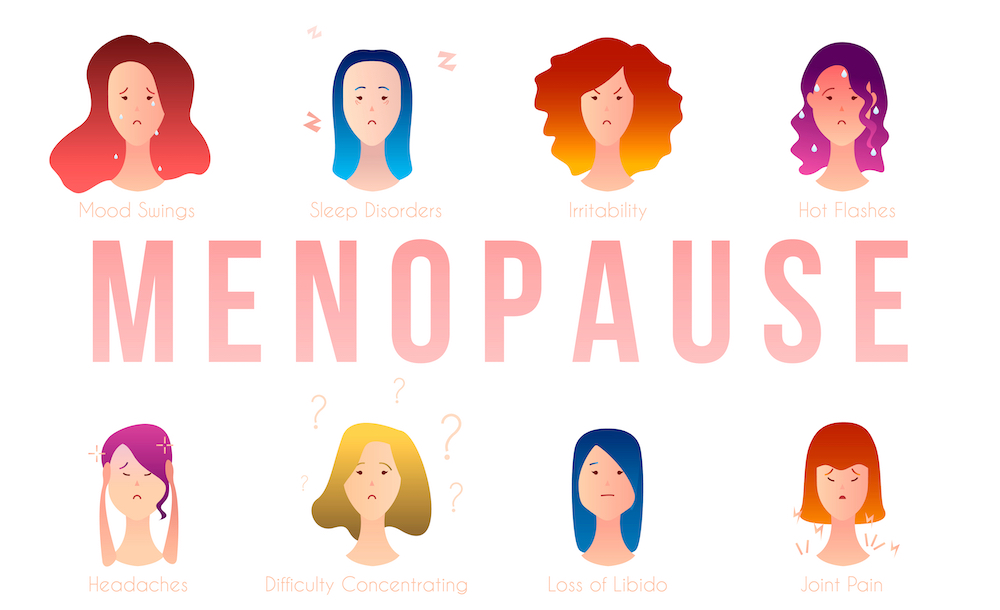

How to Find the Top Menopause Doctor Near Great Falls, Virginia Now & Why You Need One
Menopause can be a wonderful and somewhat strange transition in a woman’s life. While some get through it without being plagued by symptoms, others need a bit of help to manage.
For those who do need help, it’s time to find the top menopause doctor near Great Falls, Virginia for gynecological care.
What Exactly Is Menopause?
Menopause is marked by a point in time when you haven’t had a period for one year. It’s often a normal transition that occurs between the ages of 45 to 55, but menopause can occur earlier due to a number of circumstances such as a hysterectomy.
The period before menopause, perimenopause, can last as long as 14 years, but the duration depends on many factors like ethnicity, race, and even smoking. Many of the symptoms experienced during the transition happen during perimenopause.
What Are the Symptoms of Perimenopause?
It’s likely you’ll first notice a change in your period. They typically become irregular and can be shorter, longer, heavier, or lighter than usual.
Another well-known symptom is hot flashes. These not only happen in the years before and during menopause but can also happen after menopause. During a hot flash, you might notice you become flushed. You may experience sweating and then shivering. They usually last anywhere from 10 seconds to 10 minutes.
Sleep is often affected too. You might notice you have trouble falling and staying asleep. You might also notice a symptom called night sweats.
Many women also experience incontinence. This can present itself by sudden urges to urinate or leaking. It’s important to see a doctor if you experience incontinence, because it can also be caused by a bladder infection that requires medical treatment.
Unpredictable mood swings is another common sign. There is no scientific research that states specifically why mood changes happen. There are theories though that include depression or feeling overly fatigued.
It is possible your vaginal health and sex life can be affected by perimenopause and beyond as well. Sex may become uncomfortable due to vaginal dryness, and your feelings about sex may change.
Other normal symptoms include weight gain, muscle loss, thinning skin and hair as well as unusual aches and pains. No matter what your symptoms are or how severe, you should always seek treatment from the top menopause doctor near Great Falls, Virginia.
How Do I Find the Top Menopause Doctor?
Treat this search the same as you would when looking for a primary care provider (PCP). Consider your menopause provider an important part of your healthcare team. Follow these easy steps to the door of your menopause doctor:
- Begin your search by asking those you trust about their menopause experiences and who they recommend. You should also ask your PCP for suggestions.
- Research credentials. You should take a look at education and training and just as importantly their experience in treating menopause. Do they have special certifications? Do they stay up to date on the latest treatments? Are they involved in research related to menopause? All of those matter.
- Take time to pursue online reviews. You’ll likely gain a ton of insight from patients. Check the menopause doctor’s website and social media pages, as well as review sites such as Google and Yelp.
- Schedule a consultation when possible. This will give you an opportunity to meet one-on-one with a menopause doctor, and this is a good time to gauge your feelings. It can be difficult to discuss something as personal as menopause, so your doctor should be one who makes you feel at ease. If you’ve got questions, now is the time to ask.
What Are Common Treatments for Menopause and Perimenopause?
Your treatment depends on your symptoms and may include:
- Hormone therapy: Estrogen therapy may be prescribed in a low dose and for a short time to help you manage unwanted effects. It can also help prevent bone loss.
- Antidepressants: Usually prescribed in a low dose, certain brands of antidepressants have been shown to help with hot flashes. This is a helpful treatment for women who aren’t able to take estrogen.
- Gabapentin: This is another prescription medicine known to reduce hot flashes. It is often prescribed for women who suffer from night sweats.
- Clonidine: In the form of a pill or patch, this medication is used to treat high blood pressure but has also proven to help relieve hot flashes.
There are other menopause treatments available, and all should be explored with your menopause doctor. Be sure to ask about alternative treatments like plant-based estrogens, bioidentical hormones, acupuncture, and supplements.
Are Home Remedies Effective for Perimenopause and Menopause Symptoms?
Before you see a menopause doctor, there are a few home remedies you might want to try to relieve your symptoms. These remedies should not be a substitute for a doctor visit! Instead, they should be used in conjunction with your prescribed treatment plan.
It’s important you eat a healthy, well-balanced diet and engage in regular exercise. Exercises that strengthen your pelvic floor are especially helpful. Create a bedtime ritual to help you get plenty of sleep.
Also, try relaxation techniques like yoga and meditation to help with stress. If you smoke, now might be a good time to quit as smoking increases your risk of heart disease, osteoporosis, and other serious health conditions.
The Top Menopause Doctor Near Great Falls, Virginia Is Just a Phone Call Away!
At Annandale Ob-Gyn, our team strives to provide the highest quality healthcare for women. You’ll find the compassion and respect you deserve in our warm and welcoming environment.
If you are having difficulty managing your perimenopause / menopause symptoms, we encourage you to contact us today at 703-642-7522. Let’s start your personalized treatment plan, and get your life back on track!






